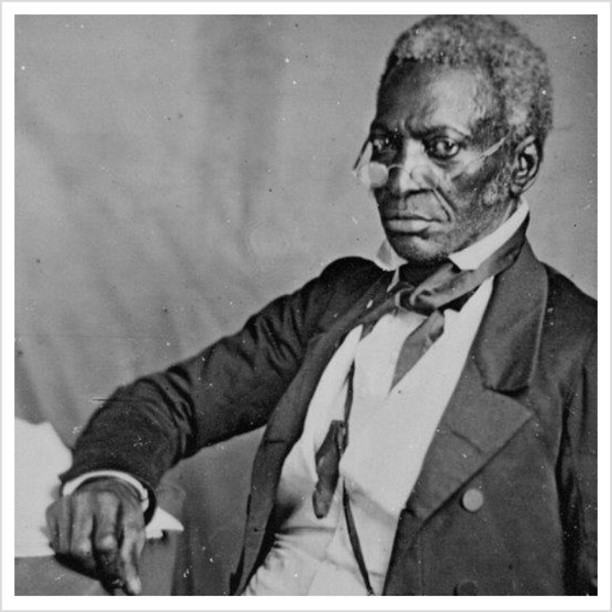John Hanson, The First President Of The United States

When we think of the founding fathers of the United States, names like George Washington and Thomas Jefferson often come to mind. However, many are unaware that John Hanson holds the title of the first president under the Articles of Confederation, a significant yet often overlooked role in American history. His leadership during the early years of the nation laid foundational stones for what would become the presidency as we know it today. As the nation struggled to find its footing in the wake of independence, Hanson navigated the tumultuous waters of governance, diplomacy, and state relations. His term marked a pivotal moment that would set precedents for future leaders, even if his contributions have faded from the collective memory.
While George Washington is often celebrated for his military leadership and role in the Constitutional Convention, John Hanson’s presidency deserves recognition for its unique challenges and accomplishments. He served a one-year term from 1781 to 1782, a time fraught with economic instability and political division. His ability to lead during such trials is a testament to his character and vision for a united nation.
In this article, we will delve deeper into the life and legacy of John Hanson, the first president of the United States, exploring his biography, contributions, and the significance of his presidency. By shedding light on his life, we hope to bring awareness to a figure who played a crucial role in the establishment of the United States as a sovereign entity.
What is the Biography of John Hanson, the First President of the United States?
John Hanson was a prominent leader in the early years of the United States, serving as the first president under the Articles of Confederation. He was born on April 13, 1721, in Port Tobacco, Maryland. Born into a family of considerable means, Hanson pursued a career in politics and became a successful merchant and plantation owner.
| Personal Details | Information |
|---|---|
| Name | John Hanson |
| Date of Birth | April 13, 1721 |
| Place of Birth | Port Tobacco, Maryland |
| Political Party | None (Independent) |
| Term as President | 1781-1782 |
| Date of Death | November 15, 1783 |
What Were the Key Contributions of John Hanson, the First President of the United States?
During his term from 1781 to 1782, John Hanson faced numerous challenges as the first president under the Articles of Confederation. His contributions are vital to understanding the nascent governance of the United States. Here are some of his key contributions:
- Diplomatic Relations: Hanson worked tirelessly to establish diplomatic relations with foreign nations, crucial for gaining recognition and support.
- Financial Stability: He advocated for the establishment of a national currency and a more organized approach to taxation, aiming to stabilize the fledgling economy.
- Interstate Relations: Hanson encouraged cooperation between states, promoting a sense of unity that was essential for a newly independent nation.
- War Efforts: He supported the Continental Army and worked to secure supplies and resources necessary for the ongoing war effort against Britain.
How Did John Hanson, the First President of the United States, Influence Future Leaders?
The influence of John Hanson on future leaders cannot be understated. His presidency set several precedents for the office, shaping the character and responsibilities of future presidents. Here’s how he influenced the office:
What Were the Challenges Faced by John Hanson, the First President of the United States?
John Hanson faced numerous challenges during his presidency, which were indicative of the struggles of the young nation. These challenges included:
- Economic Instability: The country was grappling with debt from the Revolutionary War, making it difficult to establish a stable economy.
- Lack of a Strong Central Government: The Articles of Confederation provided limited power to the federal government, complicating decision-making.
- Interstate Disputes: Disputes between states over trade and resources created tension and hindered unity.
- War Efforts: The ongoing Revolutionary War required significant resources and support, putting pressure on his administration.
How is John Hanson Remembered Today?
Despite his significant contributions, John Hanson is often overshadowed by later presidents. However, efforts are being made to recognize his role in American history. Educational programs, historical societies, and local commemorations work toward ensuring his legacy is not forgotten. Key points of remembrance include:
- Historical Sites: Various historical sites honor his contributions and provide insights into his life.
- Educational Initiatives: Schools and universities are increasingly incorporating his story into their curricula.
- Documentaries and Publications: Recent documentaries and books have begun to shed light on his impact on American history.
Why Is It Important to Acknowledge John Hanson, the First President of the United States?
Acknowledging figures like John Hanson is crucial for a comprehensive understanding of American history. His presidency, though brief, played a pivotal role in shaping the future of the nation. By recognizing his contributions, we gain a more nuanced view of the challenges and triumphs faced by the early leaders of the United States. Moreover, understanding his role can inspire future generations to appreciate the complexity of governance and the importance of unity in times of adversity.
Conclusion: The Legacy of John Hanson, the First President of the United States
In conclusion, John Hanson, the first president of the United States, played an essential role in navigating the early challenges of a newly independent nation. His leadership, marked by determination and vision, laid the groundwork for future governance. By shedding light on his life and contributions, we honor a leader who, although often forgotten, helped shape the course of American history. It is imperative that we continue to educate ourselves and others about figures like John Hanson, ensuring their legacies endure for future generations to learn from and appreciate.
ncG1vNJzZmivp6x7o77EnKKepJxjwqx7yaiqrKaVrMBye8mon6dlmJa7tLvNZquhnV2btrO%2F02anq52jnrGmutNmpp9lpJ2ybsHNoquenF2owaLAxKxloaydoQ%3D%3D
